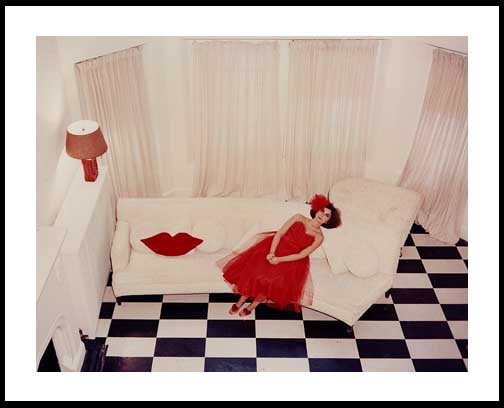I must say it is rather disquieting to come down to breakfast, innocently open the paper, and find in it a photograph of a sign put together by a fellow who proposes I should be put to death because of my marriage.
I mean dang!
However, I found that as I studied the gentleman’s sign more closely, I realized that perhaps I might be safe from this gentleman’s sentence of capital punishment after all.
As I read the text, so helpfully quoted from the book of Leviticus, I see that it says, “If a man also lie with mankind, as he lieth with a woman, both of them have committed…", etc.
As a strict constructionist, as one who takes the Bible to be the very exact and not-to-be-re-interpreted-by-all-you-liberals true spoken Word of God, I found myself drawn to observe certain key words in this verse 13 of Leviticus chapter 20. I mean to say, this is a verse that so many, from the Pope to the humblest cross-bearing believer, have judged to be one of the most important verses in all of scripture. After all, it is from these 33 words, that they have fashioned a sweeping condemnation of a sizeable chunk of humanity.
So I want to be sure that we are all reading it exactly right.
I cannot help but call your attention to certain words in this verse. First, I notice the word “also” as in “if a man also lie with mankind..” Then I look at this phrase “as he lieth with a woman.” Two things strike me.
First, it seems to me that in order to fall under the scope of this very strict pronouncement of judgment—a person must be a person of the male persuasion. Reading it quite closely and exactly, I see that it does not prohibit the liething of a woman with a woman.
So I am certain, that Mr. Adams, the maker of the sign, would not dream of reinterpreting or second guessing God’s clear dictum in this verse by supposing that there is anything at all contained within it that objects to a woman liething with a woman. That would be reading between the lines—that would be interpreting—that would be activist rewriting of God’s word—and that is something only wrongo liberals do.
Second, with this word “also” I find myself obliged to ask, why is that word “also” in there? After all, God didn’t put anything in the Bible by accident! I think that it is quite clear that in order to fall under the scope of this very strict pronouncement of judgment—a person must first be man, and second he must lie with another man, but, and this is the important part, he must “also” lieth with a woman. Because being very strict and literal about it, if a man lie with a man and he never in his born days has layeth with a woman, than it cannot be said that he “also” lie with a man as he lieth with a woman. I think that if he never did layeth with a woman, then he’s OK.
I mean if the word of God in the holy Bible had said, “If a man lie with mankind, as mankind lieth with womankind, both of them have committed an abomination,” that would be different. If God had dropped the “also” and changed “as he lieth” to “as mankind lieth,” then I fear that even the poor sixes on the Kinsey scale—that is those men who only ever lie with mankind, and would never dream of also laying with a woman, would be in trouble.
But that isn’t what God says. As I read it—in my very strict and not at all loose way—what this verse says is that bisexual men should be put to death.
Everyone else, the lesbians, and those poor male sixes on the Kinsey scale who have never gotten it on with a woman, and even those brave male fours and fives on the Kinsey scale who have righteously resisted their occasional impulse to get it on with a woman—they’re all OK!
The only ones condemned by God, are bisexual men! I tell you, it is those lousy bisexual men. They are the ones, after all, who ALSO lie with mankind as they lie with a woman. Tch. Tch. Their blood shall be upon them. So there.
But even as I am reassuring myself of this correct, proper and strictly strict interpretation of God’s word, I suddenly recall that back in ‘75—there was that one night when I was feeling really frisky. My friend Dolores and I were having such a good time, and she was looking fine and then before either of us knew what was happening, we …. Oh my God, I’m doomed!



